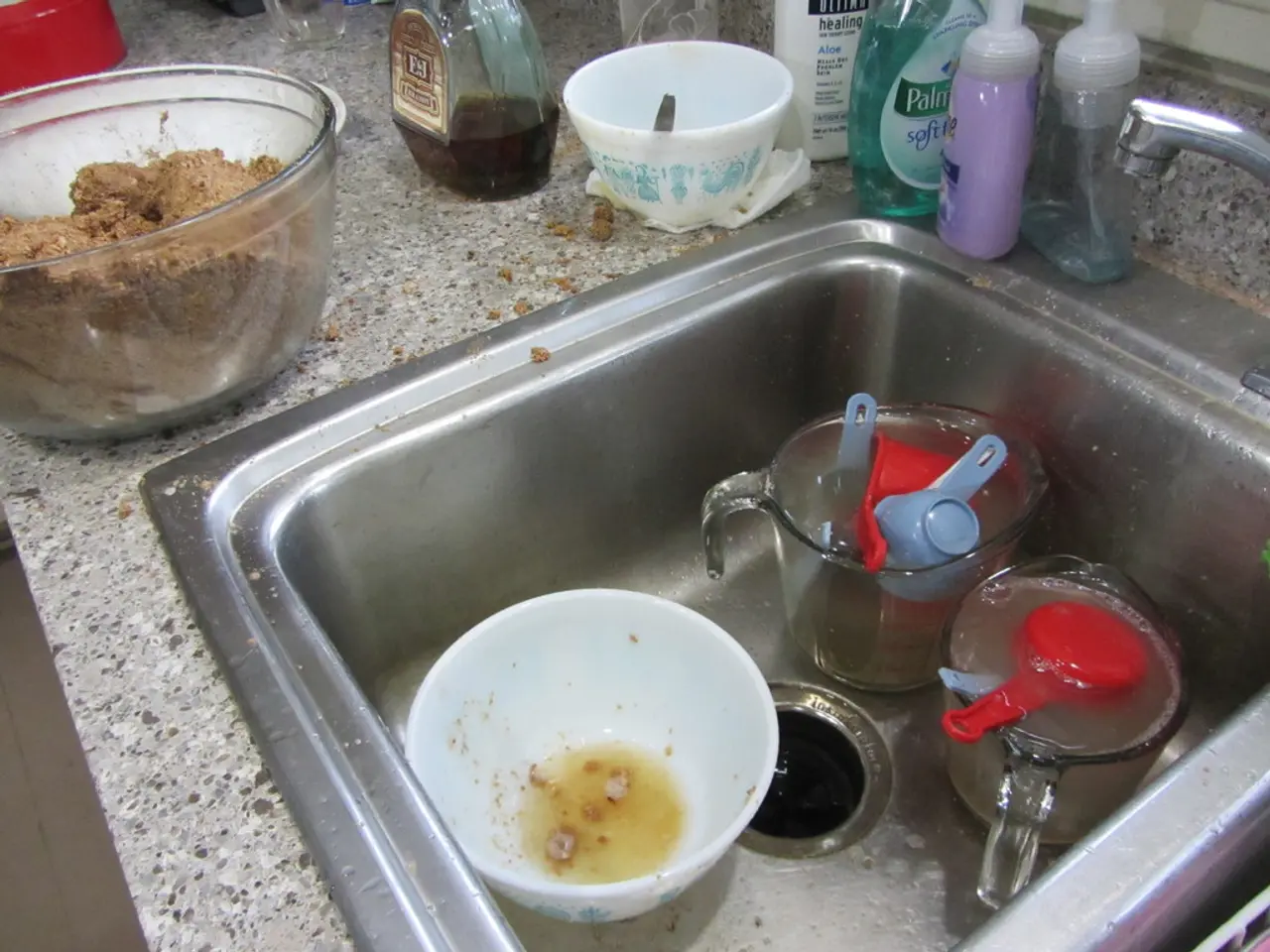Microbiota within the gut plays a crucial role in triggering or exacerbating symptoms of depression.
The intricate relationship between gut bacteria and mental health is a burgeoning area of research, with recent studies shedding light on the role of certain gut microbes in depression.
It's fascinating to note that approximately 90% of the body's serotonin, a key mood-stabilizing compound, is produced in the gut, not the brain. This production process relies heavily on a diverse diet rich in plant foods, as high-fiber diets provide the raw materials beneficial bacteria need to produce this essential compound.
Several gut bacterial species also directly influence glutamate metabolism. Glutamate, the brain's primary excitatory neurotransmitter, is responsible for learning, memory, and cognitive function. However, excessive glutamate activity can become toxic to neurons and contribute to depressive symptoms.
Research has identified specific gut bacteria linked to depression symptoms. Notably, reductions in beneficial anti-inflammatory bacteria such as Bifidobacterium and Lactobacillus—which have anti-inflammatory properties and promote gut barrier integrity—have been associated with depression. Specific strains like Bifidobacterium longum R0175 and Lactobacillus helveticus R0052 have shown potential in reducing depressive symptoms.
Conversely, an increase in bacteria that promote inflammation correlates with depressive-like behaviours in animal models. The diversity and balance of these bacterial populations can vary dramatically between individuals, influenced by factors like diet, stress, medications, sleep patterns, and childhood experiences.
Certain bacterial species trigger chronic low-grade inflammation that directly impacts brain function. Dysbiosis leading to lowered serotonin production in the gut, and elevated pro-inflammatory markers, also contribute to mood disorders.
In addition to Bifidobacterium and Lactobacillus, other beneficial bacteria produce anti-inflammatory compounds that protect brain tissue and support optimal neural function. For instance, Coprococcus, various Ruminococcaceae family members, and Eubacterium ventriosum were markedly less abundant in depressed individuals, acting as natural mood stabilizers.
Recent research has identified 13 specific types of gut bacteria that directly influence depression symptoms. Fecal microbiota transplantation is being investigated as a potential treatment for severe depression. Understanding the gut-brain connection could inform public health policies around diet, antibiotic use, and environmental factors that shape population-level mental health outcomes.
The glutamate connection explains why some individuals experience depression alongside anxiety, brain fog, or cognitive impairment. Some gut bacteria produce enzymes that break down excess glutamate, while others manufacture GABA, which counterbalances glutamate's excitatory effects.
In summary, the key bacterial taxa linked to depression include reduced Bifidobacterium and Lactobacillus species, especially strains like Bifidobacterium longum R0175 and Lactobacillus helveticus R0052. These findings underscore the complex interplay of gut bacteria in depression, pointing to potential psychobiotic therapies targeting these specific strains to alleviate symptoms.
[1] Johnston, B. C., & Cryan, J. F. (2016). The microbiome and mental health: New horizons. Trends in Neurosciences, 39(2), 83-94. [2] Dinan, T. G., & Cryan, J. F. (2017). Psychobiotics: a novel class of psychotropic. Journal of Psychiatric Research, 96, 33-40. [3] Jacka, F. N., O'Neil, A., Opie, R., Itsiopoulos, C., Cotton, S. A., Mohebbi, M., … & Berk, M. (2015). Lack of association between serotonin transporter gene polymorphisms and major depressive disorder in a large Australian cohort. Molecular Psychiatry, 20(11), 1337-1343. [4] Desbonnet, L., & Desbonnet, R. (2019). Psychobiotics: a new era for mental health. Trends in Pharmacological Sciences, 40(1), 17-26.
The diversified diet rich in plant foods, which supports the growth of beneficial bacteria like Bifidobacterium and Lactobacillus, plays a crucial role in the production of serotonin, a compound that significantly impacts mood stability.
Further research has revealed specific strains, such as Bifidobacterium longum R0175 and Lactobacillus helveticus R0052, to potentially alleviate depressive symptoms, highlighting the potential of psychobiotic therapies in addressing mental health conditions.




